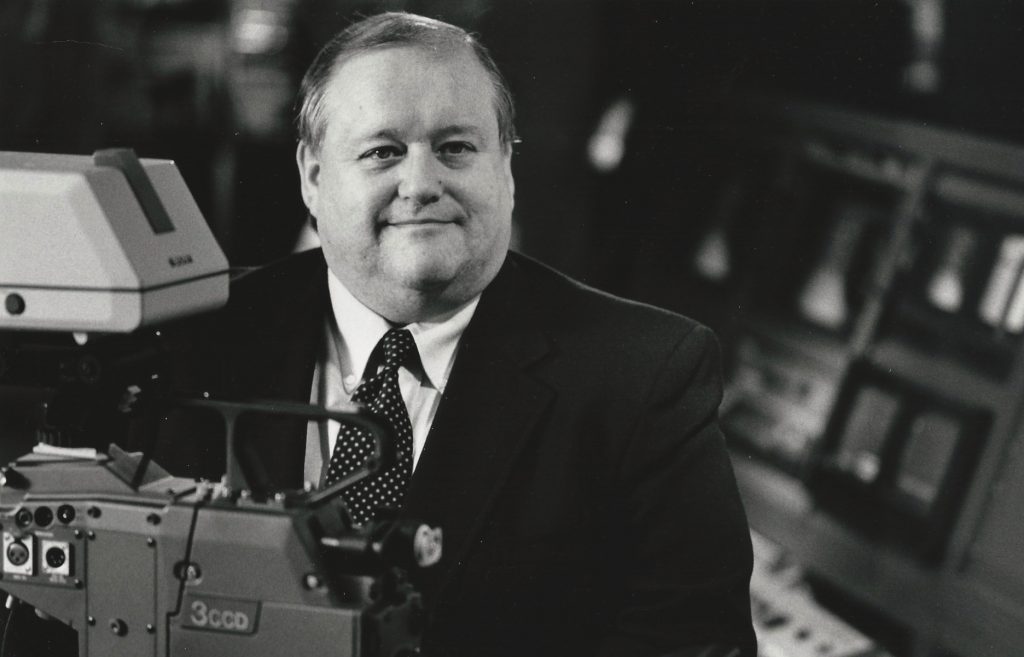Jeff McGrath, an influential Chicago television executive for more than 30 years and a mentor to generations of producers and programmers working around the country, died Sunday at Highland Park Hospital after a long illness. He was 73.
His distinguished career in television management included a long run as program director at ABC-owned WLS-Channel 7, where he first brought Oprah Winfrey to the attention of then-general manager Dennis Swanson.
McGrath later served as general manager of WYCC-Channel 20, the City Colleges of Chicago public television station, and as president and chairman of the board of Silver King Communications, parent company of the former WEHS-Channel 60 here and 13 other home-shopping stations. He also was president and partner of Center City Studios, a broadcast and advertising production facility in Chicago.
A Chicago native and graduate of Drake University, McGrath joined ABC 7 as a producer/promotion writer in 1967 and moved up to community affairs director, specials producer, executive producer and assistant program director before he was named program director in 1976.
Among other programs, he was credited with creating “The Prize Movie with Ione,” a daily two-hour movie show combined with a call-in promotion. He won a local Emmy Award as executive producer of an ABC 7 documentary on crime.
In 1983 he was the first to spot a 29-year-old Winfrey on the demo tape of Debra DiMaio, a producer from Baltimore he had hired for “A.M. Chicago.” In announcing her hiring as host of the weekday morning talk show, McGrath said: "Oprah Winfrey is the most dynamic and captivating talk show performer I have come across in many, many years."
McGrath said he fell in love with broadcasting as a youth on the Northwest Side when he and some friends engineered a 30-watt pirate radio station. “On a warm summer night we would sign on and play pre-recorded programs and drive around the area listening to our station,” he once recalled. “This all came to an end when a friend noticed federal signal scanning trucks in the area one Saturday night. Our worst fears realized the FCC was about to nail us, so we went dormant for several months and then lost interest in the clandestine concept.”
Nevertheless, McGrath added, “the very idea of communicating to thousands — even millions — was always a magnet to me.”
Survivors include his wife, Joan, and a son, Andrew. Arrangements are pending.


